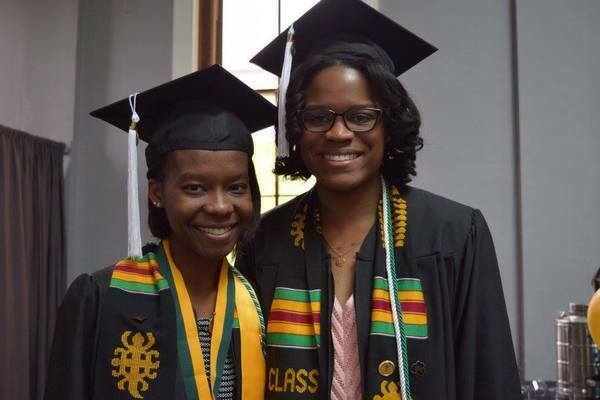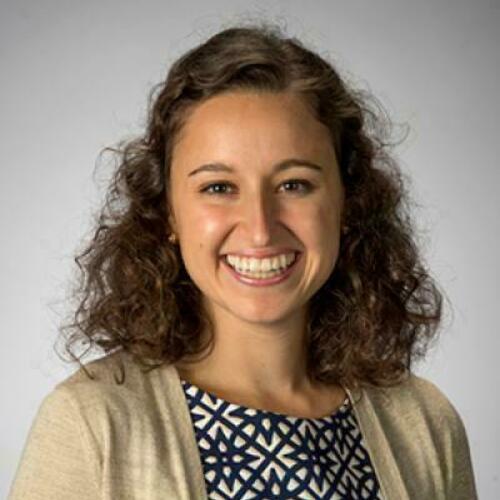Careers
Study Africana. Do Anything.
What can I do with an Africana major?

Recent graduates of Africana Studies at Notre Dame have gone on to top law school, medical school, and other graduate school programs around the globe.
While many of our students elect to pursue post-graduate studies, others commit to a year of service or go straight into the workforce. Africana Studies alumni are employed in a variety of sectors of our economy including government service, human resources, education, public policy, marketing, sales, scientific research, health care, and consulting.
Our graduates often comment after they are out in the workforce that their association with Africana Studies is what set them apart from others in their career and graduate school searches.
Skills you'll learn
- Ability to articulate complex thoughts and theories
- Effective oral communication
- Strong writing
- Team Work
- Critical thinking and analytical reasoning
- Ability to apply knowledge to real-world settings
- Ethical judgment and decision making
- Ability to analyze and solve problems with people from different backgrounds

Emmie Mediate ’15
Director of U.S. Climate & Health Program, Health Care Without Harm
Emmie Mediate, a Rhodes Scholar, majored in Africana studies and Arts and Letters pre-health. “I wanted to find a program that covered different narratives about Africa and how they reconcile with one another. In Africana Studies, we explored the history, sociology, and culture of the continent, all informed by research"
“I couldn’t have done the same research at any other university. With every research project I undertook, I was able to find a professor who was willing to sit down, talk about my idea, read several drafts of proposals, and help me through the process. That’s really special.”
-
Emmie Mediate ’15
Director of U.S. Climate & Health Program, Health Care Without Harm
Emmie Mediate, a Rhodes Scholar, majored in Africana studies and Arts and Letters pre-health. “I wanted to find a program that covered different narratives about Africa and how they reconcile with one another. In Africana Studies, we explored the history, sociology, and culture of the continent, all informed by research"
“I couldn’t have done the same research at any other university. With every research project I undertook, I was able to find a professor who was willing to sit down, talk about my idea, read several drafts of proposals, and help me through the process. That’s really special.”
-
Steven Cartwright ’07
Founder, Exponent Education
“I help public schools and school systems use data to improve. Every day, I leverage both the econometrics skills I developed in my economics major, as well as the knowledge and mindsets I developed in Africana Studies courses on racial formation, racial identity, social inequality, and the politics of race and ethnicity. I am better able to advise the superintendents and cabinets of, particularly, large urban school systems because I learned how to analyze systemic problems as an Africana Studies major, and because I am cognizant of the ways in which my own identity, as a white man, and the privileges it confers, affect how I work and can exacerbate inequities.”
-
Asha Barnes ’18
Associate Planner, Chicago Metropolitan Agency for Planning
“It was through my education at Notre Dame that I was able to learn the skills that I have now to collect and tell the stories of other people and advocate for communities that I’ve worked with. You gain a greater understanding of the world that we live in, of the history that we are working with or contending with, and you gain tools that you need to rectify past wrongs. If you look at the state of American cities and how segregated they are, I’m able to utilize my knowledge of the African diaspora, of African American culture, to better assist or advocate for those communities”
-
Demetrius Murphy ’15
Ph.D. Candidate, Sociology - University of Southern California
“My work wrestles heavily with the theories and scholars in Africana Studies. My research interests lie in the areas of race and ethnicity, urban sociology, economic sociology, and sociology of culture. I focus on flourishing, the Black class structure, and Black placemaking. My dissertation, Remaking Black LA: Flourishing in the Anti-Black Metropolis, examines how Black people across the class spectrum create and experience meaningful lives in Los Angeles County. Studying in the Department of Africana Studies was critical to my career path.”
-
Dr. Alexandra Rice ’16
Resident Physician, Duke Department of Family Medicine
“My time in the Department of Africana Studies helped to develop and inform my personal and academic interest in addressing the historical and ongoing mistreatment of Black patients and other patients of color. Across all ages, the risks to one’s health are unjustly heightened for marginalized patients. Being a Family Medicine physician allows me to help individual patients navigate illness through culturally responsive medicine, and also to help eliminate societal barriers to care through advocacy, education, and community involvement and Africana Studies helped me better understand how to do so.”
96% of recent Notre Dame Africana Studies majors and minors found full-time employment, enrolled in graduate school, entered service programs, or launched independent projects within six months of graduation.
Note: Outcomes data comes from First Destination reports, a survey of recent graduates conducted by the Notre Dame Center for Career Development and Office of Strategic Planning and Institutional Research. Status is known for more than 90% of each graduating class.
Independent projects include activities such as writing a novel, making a film or fine arts project, traveling the world, caring for a family member, etc.